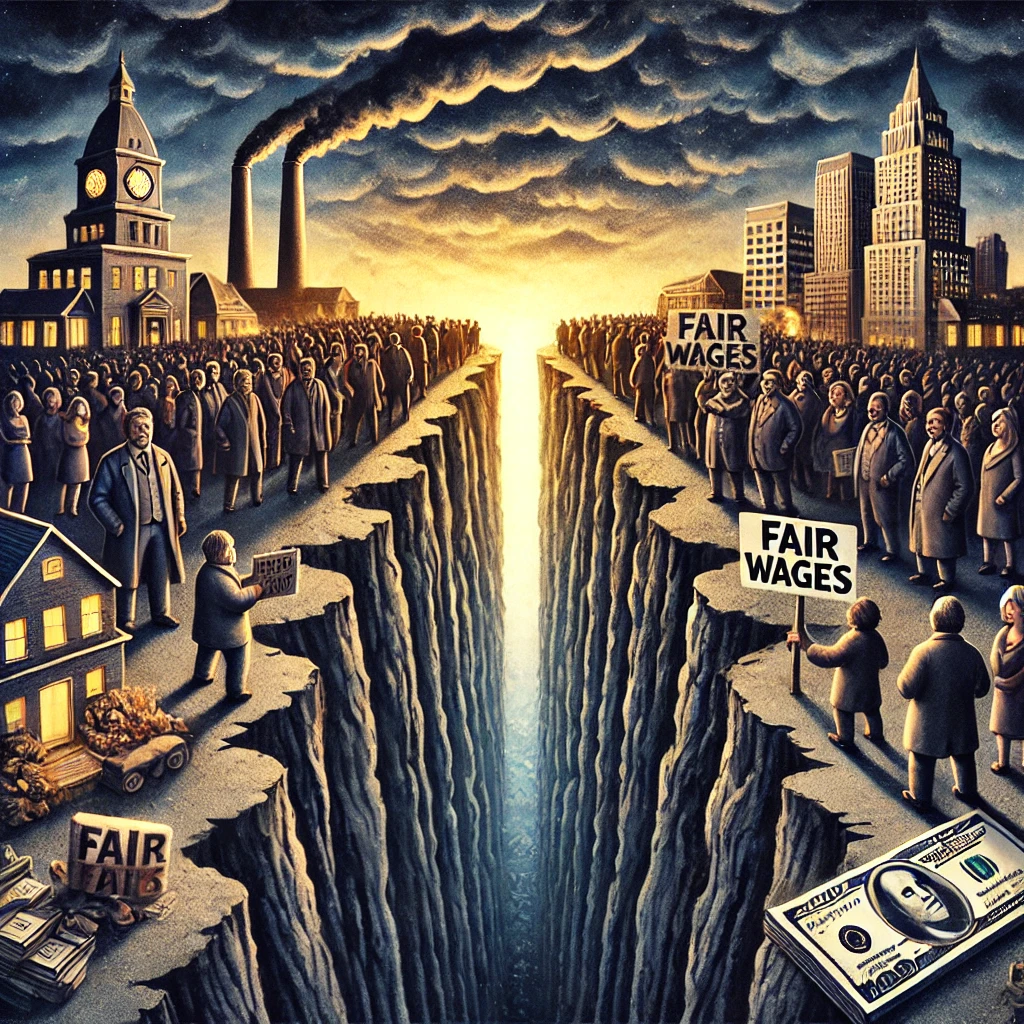Imagine living with a net worth of over $12 billion yet being unable to sleep at night—not because of the luxury, but because of fear. That’s the reality of Johann Rupert, the South African billionaire behind the renowned Cartier brand.
Rupert, often in the spotlight for his immense fortune and influence, has voiced a concern that seems both unusual and deeply reflective of our times: the potential uprising of the world’s poor.
A Billionaire’s Fear Reflects Global Inequities
In a rare moment of vulnerability, Rupert shared his apprehensions about the growing social divide.
“What happens when the poor decide they’ve had enough?” he asked during an interview that quickly became a focal point of debate.
His candid acknowledgment of this global issue highlights a brewing tension in societies where the wealth gap continues to widen.
Rupert’s fears aren’t unique among the ultra-wealthy.
Many billionaires are quietly troubled by the same thought: What happens when the underprivileged masses, pushed to the brink by economic disparity, demand more from those at the top?
For someone in Rupert’s position, the question is not merely philosophical—it’s existential.

Does $12 Billion Truly Hold the Power to Help?
With a net worth of $12 billion, Rupert has the resources to drive significant change, yet his wealth also makes him a target for criticism.
Detractors argue that billionaires like him could alleviate global poverty with even a fraction of their fortune.
However, others point out that personal wealth, no matter how vast, can only do so much in solving systemic issues.
For instance, Rupert has directed his resources toward targeted philanthropic efforts.
One of his notable projects provided land and housing to 10,000 underprivileged South Africans, addressing longstanding issues of land ownership and property rights.
While commendable, critics argue such actions are a drop in the ocean compared to what’s truly needed to close the gap.
The Ripple Effect of Billionaire Inaction
Many believe Rupert’s fears are justified but misplaced. The true problem, they argue, lies not in the potential for an uprising but in the systems that perpetuate inequality.
Governments, corporations, and wealthy individuals must collaborate to address these root causes.
This issue becomes even more pressing when one considers the economic multiplier effect.
In South Africa, Rupert’s home country, $12 billion could achieve the purchasing power equivalent to $83 billion in the United States.
Such potential could radically transform local economies, improve infrastructure, and create sustainable growth.
Yet, as some commentators point out, it’s not just the wealthy who need to step up.
Governments and global institutions also bear responsibility for ensuring equitable distribution of resources and opportunities.

The Growing Divide Warns of Danger Ahead
Rupert’s remarks serve as a stark reminder of the fragile balance in modern society. When the gap between the rich and poor becomes too wide, history shows that unrest follows.
From the French Revolution to modern-day protests, the pattern is clear: inequality breeds instability.
What makes Rupert’s perspective particularly noteworthy is its timing.
In a post-pandemic world grappling with inflation, housing crises, and job insecurities, his fears echo the sentiments of millions.
Yet, for many struggling individuals, the question remains: If billionaires like Rupert truly understand the stakes, why don’t they do more?
Conclusion
Rupert’s fears might be valid, but they also serve as a call to action.
Whether it’s through philanthropy, systemic change, or grassroots movements, the solution to inequality requires collective effort.
Billionaires, governments, and citizens must find ways to bridge the divide before fears turn into reality.
As the world watches billionaires like Johann Rupert wrestle with these existential questions, one thing becomes clear: Wealth alone cannot shield anyone from the consequences of inequality. Whether through collaboration or conflict, change is inevitable.
Clark is a 26-year-old expert working for consumer protection, Clark has dedicated years to identifying and exposing fraudulent schemes. He is working with NGOs to help people who are victims of scams. In his free time, Todd plays football or goes to a bar.







